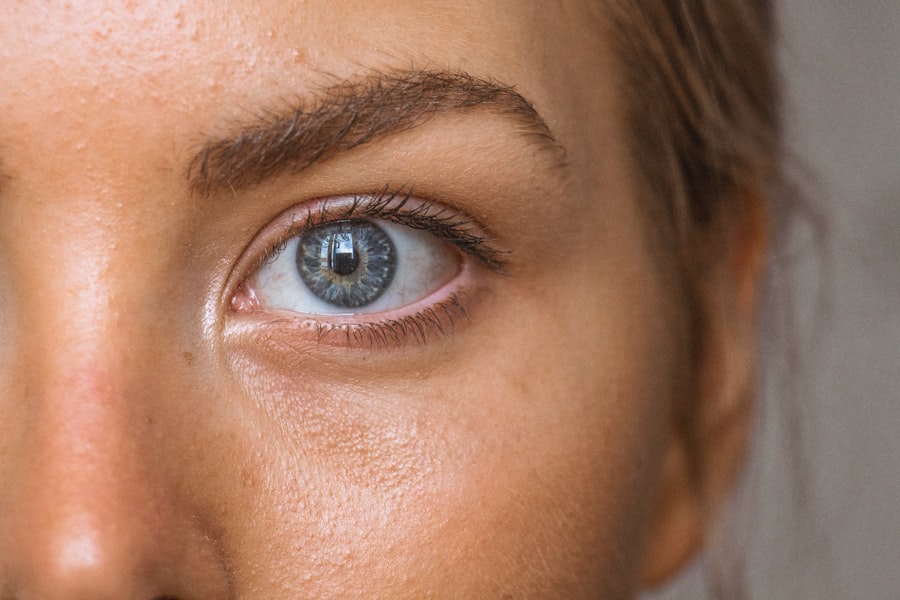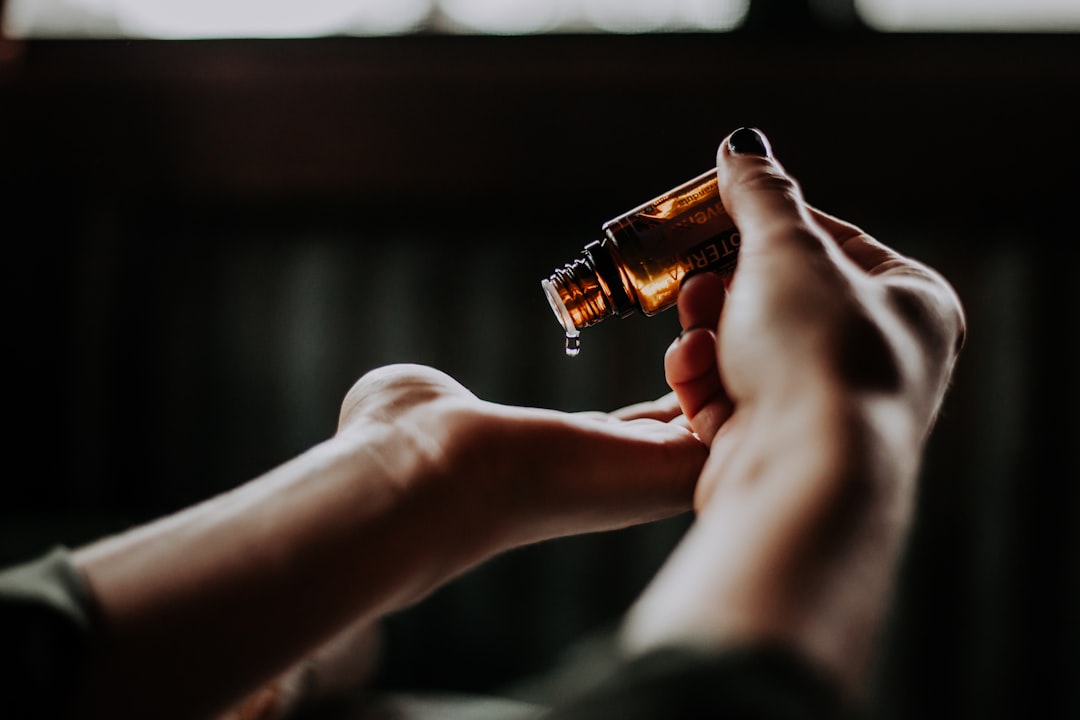Understanding your skin type is crucial when it comes to choosing the right moisturizer. There are generally four main skin types: normal, dry, oily, and combination. Normal skin is well-balanced, not too oily or too dry, and usually has small pores. Dry skin often feels tight and may appear flaky or rough. Oily skin tends to have enlarged pores, a shiny complexion, and is prone to acne and blackheads. Combination skin is a mix of both oily and dry areas, with the T-zone (forehead, nose, and chin) being oily and the cheeks being dry.
For those with normal skin, a lightweight moisturizer that provides hydration without feeling heavy on the skin is ideal. Dry skin types will benefit from a richer, more emollient moisturizer that helps to lock in moisture and prevent flakiness. Oily skin types should look for oil-free, non-comedogenic moisturizers that won’t clog pores or contribute to excess oil production. Combination skin can benefit from using different moisturizers on different areas of the face, such as a lightweight gel for the T-zone and a richer cream for the cheeks.
Understanding your skin type will help you narrow down your options and find a moisturizer that addresses your specific needs. It’s important to pay attention to how your skin feels throughout the day and how it reacts to different products to determine your skin type accurately.
Summary
- Understanding your skin type is crucial for choosing the right moisturizer
- Look for ingredients like hyaluronic acid and glycerin in a moisturizer for hydration
- Avoid ingredients like alcohol and fragrance that can irritate the skin
- Choose a lightweight, non-greasy texture for oily skin and a richer texture for dry skin
- Consider additional skin concerns such as acne or sensitivity when selecting a moisturizer
- Budget-friendly options like drugstore brands can be just as effective as high-end products
- Test moisturizer on a small patch of skin and apply in upward motions for best results
Ingredients to Look for in a Moisturizer
When it comes to choosing a moisturizer, the ingredients play a significant role in determining its effectiveness. Some key ingredients to look for in a moisturizer include hyaluronic acid, glycerin, and ceramides. Hyaluronic acid is a powerful humectant that can hold up to 1000 times its weight in water, making it an excellent ingredient for providing intense hydration to the skin. Glycerin is another humectant that helps to attract moisture to the skin and keep it hydrated. Ceramides are lipids that help to restore the skin’s natural barrier and prevent moisture loss.
In addition to these hydrating ingredients, antioxidants such as vitamin C and E can help protect the skin from environmental damage and promote a more youthful complexion. Niacinamide, also known as vitamin B3, is another beneficial ingredient that can help to improve the skin’s texture, reduce redness, and minimise the appearance of pores. Peptides are amino acids that can help to stimulate collagen production and improve the overall firmness and elasticity of the skin.
When choosing a moisturizer, it’s essential to look for ingredients that are suitable for your specific skin type and address any particular concerns you may have, such as ageing, sensitivity, or acne-prone skin. Reading the ingredient list and understanding the benefits of each ingredient can help you make an informed decision when selecting a moisturizer.
Ingredients to Avoid in a Moisturizer
Just as important as knowing what ingredients to look for in a moisturizer is knowing what ingredients to avoid. Some common ingredients that may be problematic for certain skin types include fragrances, alcohol, and certain preservatives. Fragrances, whether synthetic or natural, can be irritating to sensitive skin and may cause redness, itching, or allergic reactions. Alcohol can be drying and irritating to the skin, especially for those with dry or sensitive skin types. Certain preservatives such as parabens and formaldehyde-releasing agents have been linked to potential health concerns and may be best avoided.
For those with acne-prone or sensitive skin, it’s important to steer clear of comedogenic ingredients such as mineral oil and coconut oil, which can clog pores and exacerbate breakouts. Similarly, those with sensitive skin should avoid potential irritants such as essential oils, menthol, and citrus extracts. It’s also worth noting that some individuals may have allergies or sensitivities to specific ingredients, so it’s essential to pay attention to how your skin reacts to different products and avoid any known triggers.
Reading the ingredient list carefully and being mindful of potential irritants can help you avoid any adverse reactions and find a moisturizer that is gentle and suitable for your skin.
Choosing the Right Texture for Your Skin
The texture of a moisturizer plays a significant role in how it feels on the skin and how well it works for your specific skin type. Lightweight lotions and gels are ideal for those with normal to oily skin types as they provide hydration without feeling heavy or greasy. These textures are easily absorbed into the skin and are less likely to clog pores or contribute to excess oil production.
For those with dry or mature skin, richer creams and balms are more suitable as they provide a more substantial barrier to lock in moisture and prevent dehydration. These textures are often more emollient and can help to soothe dry, flaky skin and improve its overall texture.
It’s essential to consider how a moisturizer feels on your skin and how well it absorbs when choosing the right texture. Some individuals may prefer a lightweight gel that feels refreshing and cooling on the skin, while others may prefer a richer cream that provides a more nourishing feel. Experimenting with different textures can help you determine what works best for your skin type and personal preferences.
Considering Additional Skin Concerns
In addition to addressing your primary skin type, it’s essential to consider any additional concerns you may have when choosing a moisturizer. For example, if you have sensitive skin that is prone to redness or irritation, you may want to look for a moisturizer that contains soothing ingredients such as chamomile or aloe vera. If you have acne-prone skin, you may want to choose a non-comedogenic moisturizer that won’t clog pores or exacerbate breakouts.
Those with ageing concerns may benefit from using a moisturizer that contains anti-ageing ingredients such as retinol or peptides to help improve the appearance of fine lines and wrinkles. If you spend a lot of time outdoors or live in a sunny climate, choosing a moisturizer with SPF can help protect your skin from sun damage and premature ageing.
It’s important to assess any specific concerns you may have and look for a moisturizer that can address those needs in addition to providing basic hydration. Many moisturizers are formulated with specific concerns in mind, so taking the time to find one that suits your individual needs can make a significant difference in the overall health and appearance of your skin.
Budget-Friendly Options

Finding an effective moisturizer doesn’t have to break the bank, as there are plenty of budget-friendly options available that offer quality ingredients at an affordable price point. Many drugstore brands offer moisturizers that are suitable for various skin types and concerns without costing a fortune. Look for brands that are transparent about their ingredient lists and avoid unnecessary fillers or fragrances.
Some budget-friendly ingredients to look for in a moisturizer include hyaluronic acid, glycerin, and ceramides for hydration; niacinamide for improving texture; and antioxidants such as vitamin C and E for protection against environmental damage. These ingredients can be found in many affordable moisturizers and offer excellent benefits for the skin without the hefty price tag.
It’s also worth considering multi-tasking products such as tinted moisturizers or BB creams that combine hydration with light coverage or sun protection. These products can save you time and money by offering multiple benefits in one convenient package.
Tips for Testing and Applying Moisturizer
When testing a new moisturizer, it’s essential to patch test it on a small area of your skin before applying it all over your face. This can help you determine if you have any adverse reactions or sensitivities to the product before committing to using it regularly.
When applying moisturizer, it’s best to do so on clean, damp skin to help lock in moisture more effectively. Use gentle upward motions to massage the product into your skin, paying extra attention to areas that tend to be drier such as the cheeks or around the eyes.
It’s also important to apply moisturizer both morning and night as part of your skincare routine to keep your skin hydrated throughout the day and promote its overall health and resilience.
In conclusion, choosing the right moisturizer involves understanding your skin type, looking for beneficial ingredients, avoiding potential irritants, considering additional concerns, exploring budget-friendly options, and following best practices for testing and application. By taking these factors into account, you can find a moisturizer that suits your individual needs and helps you achieve healthy, hydrated, and radiant-looking skin.
Discover the latest innovations in skincare with “Skin Wins: Celebrating the Best in Skincare Innovation.” This article highlights the groundbreaking products and technologies that are revolutionizing the skincare industry. Whether you’re looking for the best skincare products for winter or seeking skincare tips for travelers to maintain your routine on the go, this insightful piece offers valuable insights and recommendations to help you achieve healthy, radiant skin. Explore the Skin Wins article to stay informed about the most cutting-edge developments in skincare.
FAQs
What is the importance of using a moisturizer for your skin?
Using a moisturizer helps to keep the skin hydrated, prevents dryness, and can improve the skin’s overall texture and appearance. It also helps to create a protective barrier on the skin, which can prevent environmental damage and signs of aging.
How do I choose the right moisturizer for my skin type?
It’s important to consider your skin type when choosing a moisturizer. For oily skin, look for oil-free or non-comedogenic formulas. For dry skin, opt for a richer, more hydrating moisturizer. Combination skin may benefit from a lightweight, non-greasy formula. Those with sensitive skin should choose a moisturizer that is fragrance-free and hypoallergenic.
What ingredients should I look for in a moisturizer?
Ingredients such as hyaluronic acid, glycerin, and ceramides are great for hydrating the skin. For anti-aging benefits, look for ingredients like retinol, peptides, and antioxidants such as vitamin C and E. Those with sensitive skin should avoid fragrances and opt for gentle, soothing ingredients like aloe vera and chamomile.
How often should I apply moisturizer?
It’s recommended to apply moisturizer twice a day, in the morning and evening, after cleansing and toning the skin. However, if you have very dry skin, you may benefit from applying moisturizer more frequently throughout the day.
Can I use the same moisturizer for my face and body?
While some moisturizers are formulated for both the face and body, it’s generally best to use a separate moisturizer for the face and body. Facial skin is more delicate and may have different needs compared to the skin on the rest of the body.




